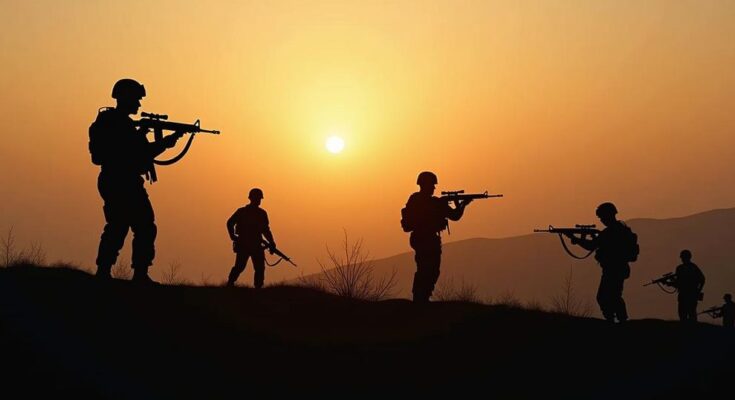Israeli troops have initiated limited ground operations in southern Lebanon targeting Hezbollah, as part of a broader conflict with Iran-backed adversaries. The operations, supported by the United States, follow the assassination of Hezbollah leader Hassan Nasrallah and have led to military repositioning by Lebanon’s forces. UN peacekeepers have been hindered by the intensity of these clashes.
In the early hours of Tuesday, Israeli ground forces executed a limited incursion into southern Lebanon, initiating targeted ground raids against designated Hezbollah positions. This military engagement represents a new phase in Israel’s ongoing conflict with Iranian-backed factions, specifically Hezbollah. The Israeli military characterized these operations as localized and specific, aimed at dismantling the group’s command infrastructure along the shared border. US Secretary of Defense Lloyd Austin expressed support for Israeli Defense Minister Yoav Gallant, emphasizing the necessity of dismantling Hezbollah’s operational framework near the border. Additionally, Israeli Prime Minister Benjamin Netanyahu issued a stern warning to Iran, coinciding with recent escalations, including an air strike south of Beirut that resulted in the death of Hezbollah leader Hassan Nasrallah, spurring the group to appoint a successor. In reaction to these developments, the Lebanese military has begun repositioning its forces in response to the apparent threat of a more extensive Israeli invasion. Meanwhile, UN peacekeepers have reported challenges in conducting their patrols due to the ongoing violence, which has intensified on both sides. The United States State Department confirmed that Israel had communicated its commencement of these operations, while Israel declared several communities near the northern border as “closed military zones” to restrict access to military personnel.
The conflict between Israel and Hezbollah has been ongoing for many years, with recent escalations being compounded by the complex geopolitical dynamics involving Iran’s influence in the region. The death of Hassan Nasrallah, a prominent figure within Hezbollah, is likely to exacerbate tensions, potentially altering the balance of power within the group and its strategies against Israel. The situation is further complicated by Lebanon’s internal military responses and the involvement of international peacekeeping forces, which are facing difficulties due to the intense hostilities in the region.
The initiation of limited ground operations by Israel against Hezbollah in southern Lebanon signals a significant escalation in the ongoing conflict. With support from the United States and warnings directed at Iran, the situation remains precarious, with potential implications for regional stability. The evolving military dynamics entail a continuous reassessment by all stakeholders involved, including both military and diplomatic entities.
Original Source: www.france24.com




